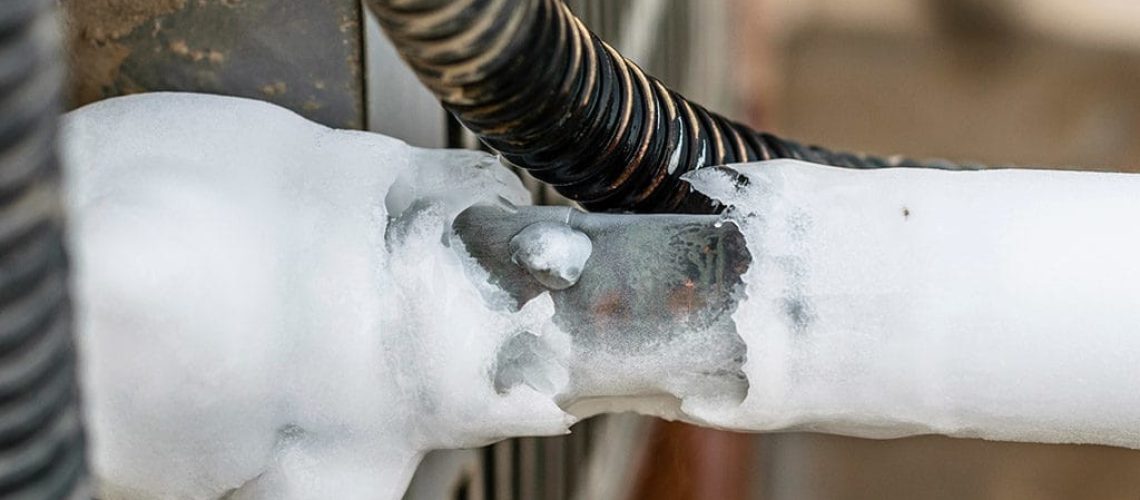The HVAC (Heating, Ventilation, and Air Conditioning) system is the backbone of a home’s climate control, ensuring comfort throughout the seasons. However, this complex system is not immune to wear and tear, and home inspectors play a crucial role in uncovering potential issues that could impact its efficiency. In this comprehensive guide, we will delve into the most common HVAC problems discovered by home inspectors, shedding light on the importance of identifying and addressing these issues for optimal home comfort and energy efficiency.
1. Dirty or Clogged Air Filters
Issue: Neglected Air Filters Affecting System Efficiency
One of the most common HVAC issues found by home inspectors is dirty or clogged air filters. Over time, filters accumulate dust and debris, hindering airflow and reducing system efficiency.
Why It Matters:
Dirty filters force the HVAC system to work harder, leading to increased energy consumption, reduced efficiency, and potential damage. Home inspectors stress the importance of regular filter replacement to maintain optimal airflow and system performance.
2. Refrigerant Leaks
Issue: Loss of Refrigerant Compromising Cooling Efficiency
Refrigerant leaks in air conditioning systems are common findings during home inspections. Leaks can occur due to wear, corrosion, or manufacturing defects, leading to a decline in cooling performance.
Why It Matters:
Refrigerant is crucial for the cooling process, and leaks can result in decreased cooling capacity, higher energy bills, and potential damage to the compressor. Home inspectors recommend identifying and repairing leaks promptly to ensure efficient cooling.
3. Faulty Thermostats
Issue: Malfunctioning Thermostats Impacting Temperature Control
Home inspectors often discover issues with thermostats, including inaccurate temperature readings, unresponsiveness, or wiring problems. Faulty thermostats can lead to uneven heating or cooling.
Why It Matters:
A malfunctioning thermostat can cause discomfort, energy waste, and unnecessary strain on the HVAC system. Home inspectors stress the importance of calibrating or replacing thermostats to maintain accurate temperature control.
4. Inadequate Insulation and Ductwork Issues
Issue: Poorly Insulated Homes and Ductwork Problems
Inadequate insulation and issues with ductwork are common HVAC concerns identified by home inspectors. Poor insulation can lead to energy loss, while ductwork problems can hinder airflow and distribution.
Why It Matters:
Inefficient insulation and ductwork problems result in energy waste, temperature imbalances, and reduced overall HVAC system performance. Home inspectors recommend addressing insulation deficiencies and ensuring proper ductwork installation to maximize efficiency.
5. Dirty or Blocked Coils
Issue: Accumulation of Dirt on Evaporator and Condenser Coils
Dirt and debris accumulation on evaporator and condenser coils are common issues that affect the efficiency of both heating and cooling components in HVAC systems.
Why It Matters:
Dirty coils reduce heat exchange efficiency, leading to increased energy consumption, system strain, and potential breakdowns. Home inspectors stress the importance of regular coil cleaning to maintain optimal performance.
6. Electrical Connection Problems
Issue: Loose or Faulty Electrical Connections
Home inspectors often uncover issues with electrical connections in HVAC systems, including loose wires, corroded terminals, or faulty components. Electrical problems can lead to system malfunctions or breakdowns.
Why It Matters:
Faulty electrical connections pose fire hazards, can cause system failure, and compromise the safety of the HVAC system. Home inspectors recommend thorough electrical inspections and prompt repairs to address connection issues.
7. Worn or Faulty Capacitors
Issue: Deterioration of Capacitors Affecting System Start-up
Capacitors in HVAC systems play a crucial role in starting and running the motors. Home inspectors frequently identify worn or faulty capacitors that can lead to startup problems and system failures.
Why It Matters:
Failed capacitors can cause the HVAC system to struggle during startup, leading to increased wear on components and potential system breakdowns. Home inspectors stress the importance of replacing capacitors as part of routine maintenance.
8. Lack of Regular Maintenance
Issue: Neglected HVAC Systems Without Routine Check-ups
A lack of regular maintenance is a common issue found by home inspectors. Neglected systems may have dirty components, worn parts, and overall reduced efficiency.
Why It Matters:
Without regular maintenance, HVAC systems are more prone to breakdowns, reduced efficiency, and shorter lifespans. Home inspectors recommend scheduling annual maintenance to keep systems running smoothly and identify potential issues early.
9. Gas Furnace Issues
Issue: Problems with Gas Furnaces Affecting Heating Efficiency
For homes with gas furnaces, home inspectors often identify issues such as pilot light problems, faulty thermocouples, or burner malfunctions.
Why It Matters:
Gas furnace issues can lead to inadequate heating, increased energy consumption, and safety concerns. Home inspectors stress the importance of addressing gas furnace problems promptly to ensure efficient and safe operation.
10. Outdated or Inefficient Equipment
Issue: Use of Outdated or Inefficient HVAC Systems
Home inspectors may discover outdated or inefficient HVAC equipment that may struggle to meet the demands of modern energy efficiency standards.
Why It Matters:
Outdated systems are less energy-efficient, leading to higher utility bills and increased environmental impact. Home inspectors recommend upgrading to more efficient systems to improve overall performance and energy savings.
Conclusion
The HVAC system, a silent workhorse, requires attention to ensure year-round comfort and efficiency. Home inspectors, armed with their expertise, play a vital role in uncovering common HVAC issues that could impact the functionality of the system. From dirty filters to refrigerant leaks and electrical problems, addressing these concerns is paramount for maintaining optimal performance and prolonging the life of HVAC systems. In the realm of homeownership, proactive measures, regular inspections, and timely repairs are key to mitigating the risks associated with common HVAC problems and ensuring a comfortable and energy-efficient home.
For other issues that home inspectors commonly find, read our article, Uncovering a Home’s Dirty Secrets.


